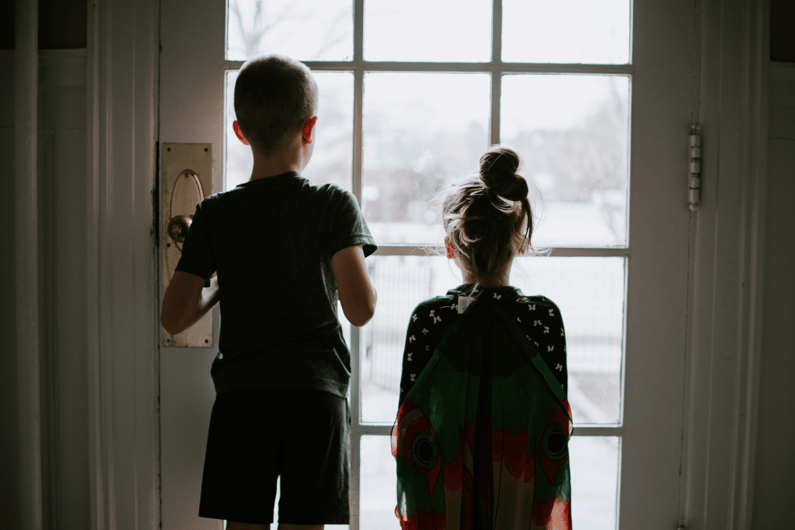
Social distancing and school closures have made it difficult for kids to stay connected with their friends, which means they need connection with their family more than ever. There have been many people during the pandemic that have experienced depression, anxiety, and sadness. Is your child one of them?
Watch for symptoms of depression in children.
Symptoms may include:
- Unusual sadness or irritability, persisting even when circumstances change.
- Loss of interest in activities they once enjoyed.
- Reduced feelings of anticipation.
- Changes in weight.
- Shifts in sleep patterns.
- Sluggishness
- Harsh self-assessment. (I’m stupid or I’m not a good friend)
- Feelings of worthlessness, hopelessness.
- Thoughts of suicide or attempts.
If you notice any of these signs lasting more than a week or two, seek professional advice on next steps.
Work-life balance may have become more difficult if you are working from home and trying to help your children do their schoolwork all day, every day. Try to implement some of the suggestions below to stay connected in a healthy way.
#1: Reduce technology-use in front of your kids.
We carry our phones with us everywhere we go; it has become the norm. This makes it all-too-easy to check your email or scroll through social media every few minutes. But these several minutes distract us, and they send the message to our kids that our time with them isn’t that valuable to us (even though we don’t feel this way).
If you notice negative attention-seeking behavior in your younger children, take a self-inventory of how much time you are spending on your phone. They may just want to be your focus.
#2: Replacing presence with presents.
Think back to some fun childhood memories. Most likely, those memories were not about a thing but rather an event that took place with someone you loved. Go for a walk, leaving those electronic devices at home, and be intentional about sharing what you see and what you find interesting. Don’t be afraid to pause for 15 seconds on your walk and take in your surroundings. Challenge each other by looking for something new each time you take a walk together.
#3: Validate their emotions.
When you take the time to allow your child to identify and be comfortable with different emotions, it will also help them to identify other’s emotions which will help relationship-building. Dismissing kids' feelings makes it harder for them to deal with those emotions even in the future. Instead, give them a quiet space to take a break and ask them to come to talk to you when they are ready.
#4: Listen first, then react.
By listening to what your children want to say, you communicate that they are worthy of your attention. This alone can help to relieve frustration and even anger. Respond with questions instead of criticism. “What would you have liked instead? Did that make you feel angry? How can I help you to ….” Attempt to lay aside your own agenda, recognize their thoughts and opinions, and try to determine a solution.
#5: Keep a healthy routine.
If the usual routines have been thrown off, establish new ones. If possible, break up schoolwork with short breaks to get up and stretch; breathing exercises are a great tool that will help them to refocus and destress. Here are some tips to teach your children breathing exercises.

Don’t forget how much a simple note in their lunch bag or on their computer screen may impact the ones you love. If you need to schedule time each day for one-on-one time, then make that the priority. Remember, if it’s not working, it’s OK to try different things and different times.
Consistency is key.
Breathe, parenting can be hard, but it is worth it! They will be out of the house before you know it. Make your days count.
“The example we set for our kids—how to act when things don’t go our way—is much, much more important than the rules we set for them.” ~ Leo Babauta


COMMENTS